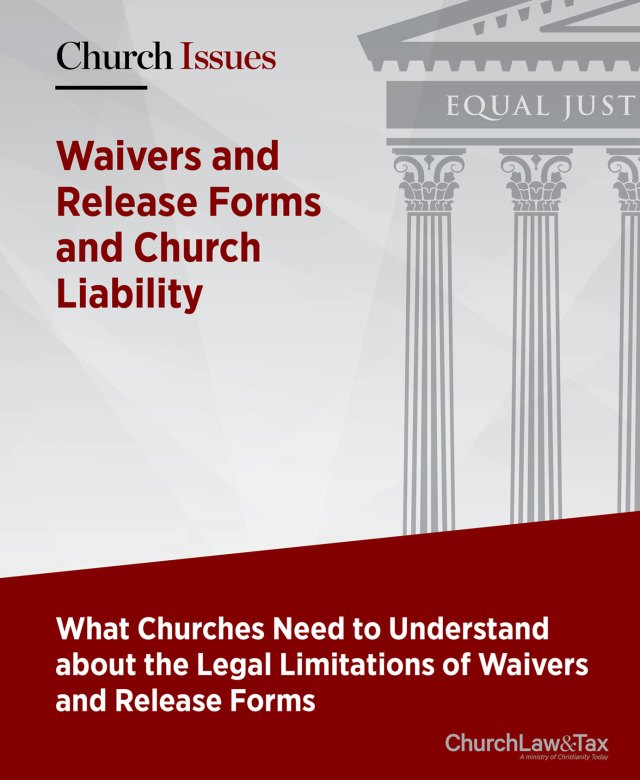An effective way to avoid employee disputes
Employment disputes represent one of the greatest risks facing churches today. These disputes often can be avoided by having the employee sign a severance agreement. Church administrators should consider using a severance agreement when a decision is made to dismiss an employee. Such agreements set forth the terms and conditions of an employee’s separation. In most cases, the employer agrees to pay the employee a specified sum of money (often expressed in terms of a specified number of weeks of pay) in exchange for the employee’s consent to the termination of the employment relationship and a release of any legal claims against the employer. Such agreements should be drafted by an attorney to ensure their enforceability.
Legal requirements
To be legally enforceable, a severance agreement generally must satisfy the following requirements:
- It must be in writing.
- It must be signed by the employee.
- The employer must provide the employee with “consideration” (something of value, such as a specified number of weeks of compensation, or continuation of health insurance) in exchange for the employee’s agreement to terminate his or her employment and release all claims against the employer. If no value is provided by the employer to the employee, the “agreement” will not be legally enforceable.
- It must contain a voluntary and unequivocal waiver or release by the employee of specified legal claims against the employer (generic releases of “all claims” generally are not enforceable). “Agreements” that an employee is compelled to sign are not legally enforceable. The agreement must specifically mention the legal remedies that are being waived, with reference to the applicable state and federal laws. For example, Title VII of the Civil Rights Act of 1964 is a federal employment law that prevents some employers from discriminating against employees on the basis of race, color, national origin, gender, or religion. If a church is covered by this law, and would like to enter into a severance agreement with an employee who is a member of a protected class, then it must refer to “Title VII of the Civil Rights Act of 1964” along with every other state or federal law that is being waived. In addition to statutory rights, the employee must also waive “common law” rights that are created by court decisions.
“Consideration”
The amount of “consideration” that an employer will offer to an employee in a severance agreement will depend upon several considerations, including the following:
- Whether the employee is a member of a protected class under an applicable state or federal employment discrimination law
- The employee’s length of employment
- The employee’s position and compensation
- The employee’s annual performance reviews (good reviews make it more difficult for an employer to terminate an employee who is a member of a protected class)
- Whether the employer has insurance to cover a wrongful termination or discrimination claim
It is a common practice for employers to ask an employee how many weeks of pay he or she feels would be appropriate. Often, employees suggest an amount that is less than the employer was considering.
Older Workers Benefit Protection Act
Churches that have 20 or more employees who are engaged in interstate commerce, are subject to the federal Older Workers Benefit Protection Act. This law provides employees who are 40 years of age or older with three important protections when it comes to severance agreements.
- Such employees must be given at least 21 days to consider any severance agreement, and the agreement must contain a provision to this effect. Employees can waive this protection by simply signing a severance agreement.
- The severance agreement must provide covered employees with a 7-day revocation period, meaning that they can revoke the severance agreement after they sign it within the next 7 days. The 7-day revocation provision cannot be waived by an employee.
- A covered employer must inform employees in writing that they have a right to seek the advice of an attorney before signing a severance agreement.




